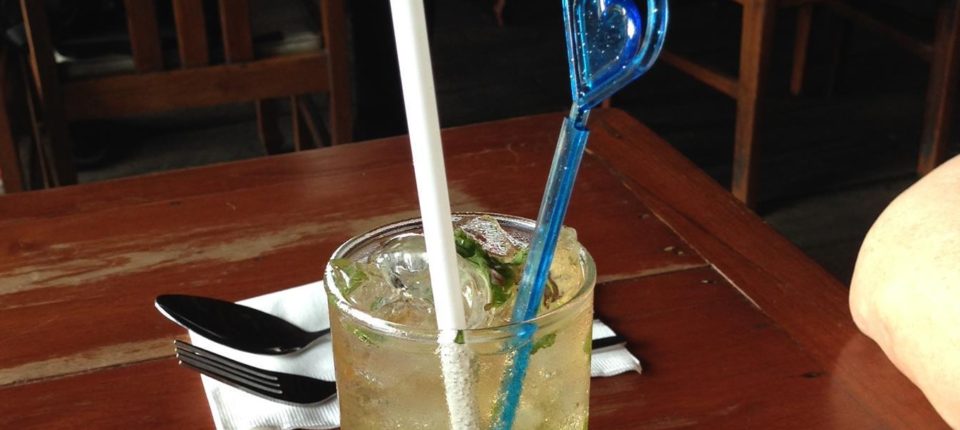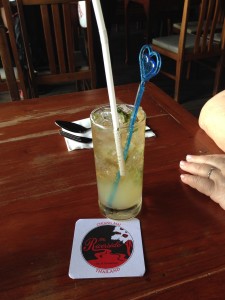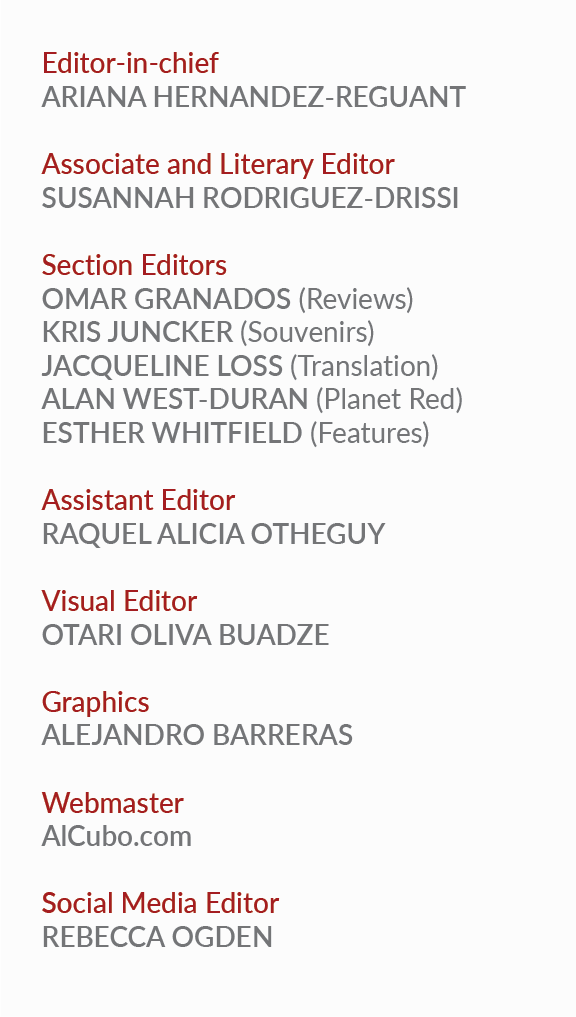Ah, the pleasures of a summer vacation on a Caribbean island. Cool breezes and dips into warm ocean waters, followed by a meal cooked by a Bahamian or Dominican chef. Here I come, Eleuthera or Punta Cana! Or better yet: a visit to the hotel bar while in Varadero or Cayo Coco, and the ensuing ritual of listening to guitar music strumming some passionate bolero, while sipping a mojito. Coconuts, rum, and smiles everywhere (mostly for tourists, sadly). Little did I know when I landed in Chiang Mai, a city of one million on the northern Thai mountains, not far from the borders with Myanmar and Laos, that the tropical climate awaiting me would also harbor similar pleasures.
I knew about elephants and ancient temples and even motorcycle taxis and orchids growing everywhere (and certainly those Thai massages awaiting on every corner), but several things I was not prepared for: platanales behind the hotel, with banana trees producing the leaves used in many places in lieu of a plate. And jugo de guayaba, yes, guava juice with every breakfast. Suffocating humid heat, relieved by riding in an open tuk–tuk driven by a man with a hard-to-pronounce long name, with warm breezes blowing in your hair; good, strong coffee served everywhere; pretty girls dressed in skimpy clothes riding on back of motorcycles without holding onto the driver; pilgrimages on foot to wats or ermitas on top of mountains to pray for health and peace; and beautiful young men smiling on every corner, every block, every park and every market stall. And I do not mean the so-called “Lady Boys”….
So many Americans living there, they even have a Rotary Club, those expats.
Apparently foreign money goes a long way in supporting a good way of life, in a country where labor is cheap and the currency exchange is usually 33 bahts to an American dollar. Not many native people knew, or even understood, where I came from: they know “Amerika”, but “Kuba”? Besides, I had to point to the United States as my place of provenance because otherwise they would have thought I lived on a Caribbean island. And I do not, at least anymore: I hail from the American West. California they might have heard of: Arizona not so much. And Cuba is a country far, far away, where revolutions take place. Not in Thailand: they even have a royal family and palaces, although they look pretty democratic to the casual eye.
My sense of familiarity with the tropical environment gave way, soon enough, to delight in exotic customs: I usually smile when greeting someone, but here I had to fold my hands in front of my chest and say “Swaadeeka!,” in response to a gesture from whoever was in front of me doing the same. “Welcome” is what one says as a greeting, as goodbye, or even when wanting to express profound gratitude. It’s like the Thai “Ciao”, only more courteous. Everyone, from the beautifully attired Royal Thai Airlines flight attendants to Ronald McDonald (no kidding, a likeness of the red-headed American fast food ambassador stands on the main thoroughfare of Chiang Mai with folded hands), says a smiling Swaadeeka to you! And watch it: Thai is a tonal language, so you have to practice making sure that your last syllable goes up instead of down. Same thing for “thank you”: everywhere you get to practice saying “Khap-kun-ka” if you are a woman, “Khap-kun-kap” if you are a guy, but make sure the last syllable is looong and goes UUUP!
At any rate, all is going well and we sit by the river Ping to see boats go by, and masses of plants are carried downstream by alluvial floods, and pork is on the menu at the restaurant, and lo and behold, the drinks include the familiar name of mojito. We order some, thinking to ourselves “Aha! We shall see what concoction they come up with”, and are pleasantly surprised to find two tall, sweaty glasses in front of our faces, full to the brim with yerba buena mint: sipping is good, life is easy while the river flows, and here is a Cubana-Americana Latina from the American Southwest enjoying a national Cuban drink pronounced fairly well in an Asian language, and mixed well by the bartender. We walk on after one drink.
Along the crowded streets of the Thai city, I see many other signs of bars proclaiming familiarity with all sorts of spirits, scotch, bourbon, gin, rum. But this last one seems to arrive mostly in the form of mojitos, pronounced just like that, written in Roman characters for the tourists, but also consumed by the native population. So we walk around in the tropical, perfumed night and we hear a familiar sound: is that a bolero? OMG: is that a bolero sung in Spanish, to the rhythm of a strumming guitar? And is that bongoses, bongos, what the other guy is playing to accompany the singer-guitarist? It is! They are!
I stand on the sidewalk and look inside at the open space of a patio bar, where two young Thai musicians are performing (is it just for us?) the unmistakable Latin bolero Bésame mucho. Only the singer says “Blésame, blésame mucho, que tengo miedo perrerte y perrerte después” (instead of bésame and perderte, of course). Yeah, well, language people know how some Asians pronounce the “L” as “R” and viceversa, but here is an L in the middle of a beso and a double R sliding over what should be a D, and I recover enough from my astonishment at the scene to take out a camera and record a short video. It would be later that night that I would check it and find out that my ears did not deceive me, and it was indeed “blésame” with an L and all the rest.
But at that moment, the delight in hearing a Latin bolero in the middle of a busy street, at night, in Chiang Mai, Thailand, made me kinda crazy.
So we went inside and ordered two mojitos and started imbibing, and the music sounded much better, and the bongosero was furiously concentrating on the beat, and the singer/guitarist belted out the words with such emotion that I felt the magic of Latin music in my veins, and was so inspired that I wanted to get up and dance, but was a little shy about it, so I kept drinking my mojito and finally stood up, got close to the stage and started singing with the musicians, and they smiled at me, even though I was saying “bésame” and not “blésame”, and I totally forgot about the other establishment patrons, and kept on singing the bolero (which I would later find out is the most played and sung Latin song in the world, inducted into the Latin Music Hall of Fame, and originally composed by a Mexican musician who happened to be a woman, and not a Cuban as I had thought, who knew).
The night was perfumed by all the frangipani flowers growing on the sidewalk bordering the bars and restaurants and massage salons (legit ones, indeed), and the sound of the Latin bolero kept on ringing in my ears after the musicians stopped playing. Well, it must have been a one-off thing, a coincidence, that Thai musicians would play this kind of music, I thought. But then they start again, and the bongosero keeps supplying a beat, and I recognize what they’re doing, they’re changing into a bossa nova rhythm, and it is… wait for it…. probably the most played and sung Brazilian song in the world, Girl from Ipanema! They start singing, and I brace myself for the Portuguese with a Thai accent, but …. oh no…. they sing in English!
I sip the dregs of my mojito, ask where the restrooms are, thank the bartender, and we walk off into the night still savoring the music, listening to the beat of bongoses, a Cubana Americana Latina from the Southwest (born in Havana and raised in Pinar del Río) listening to a global rendition of our music in the old kingdom of Siam, where elephants roam in the fields and anything is possible, even banana dreams.



